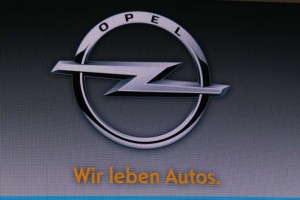John Smith, GM’s chief negotiator on the sale of Opel to an outside investor, today defended the decision by GM’s Board of Directors on Monday to retain Opel.
What many observers characterized as a surprising reversal of the board’s direction in September to pursue such a sale, and a possible slap in the face of CEO Fritz Henderson, was fundamentally a strategic move made possible as GM’s businesses improved in Europe and the U.S. compared to the beginning of the year when the sale was first seriously explored.
So rather than deal with the complications of outside owners taking over GM’s key small car and technology supplier and the core of its European operations, GM will now go it alone and “restructure Opel/Vauxhall more quickly and more successfully than any other investor,” Smith promised.
Such a strategy has large inherent risks, of course, since European governments and labor unions had already endorsed the taxpayer financing, plant closings and contract changes that were necessary to make the sale of Opel/Vauxhall to Magna viable.
Canadian parts supplier Magna International and its partner Sberbank, the largest Russian bank, offered €250 million, about $400 million, for a 55% stake in Opel.
However, the deal was complicated, and there were concerns over the security of Opel’s future product plans and its central role in GM’s global strategy.
“Opel is important to GM and GM is important to Opel,” Smith told reporters this afternoon.
In Smith’s telling, whether to sell and to whom have been close calls from the very first of the three detailed Board of Director reviews held in August, when the new Board — of largely non-auto execs — was first getting started, then in September, and finally the fateful November meeting when the sale to Magna was rejected.
“With some passage in time and closer exposure to role Opel played, and since there was really no guarantee the Magna deal would retain close ties leaves, potentially, a pretty big strategic hole. So on Monday of this week the decision was made that GM and Opel would be better off if we restructure the business ourselves,” Smith said.
The goal was – and is – to put Opel on a sustainable basis. Now, a newly restructured GM will accomplish that at a lower cost than selling the business, according to Smith.
“Frankly, if you look at the financial outcomes – we have believed and continue to believe we can restructure using less money than any other investor, including government sources. This is a good outcome for the business with less debt to be serviced, good outcome for shareholders.”
Back in late May, the German government provided a bridge loan to Opel, which at the time was within days of running out of operating cash. Opel still owes the government about €900 million of €1.5 billion advanced, but Smith said if the loan is called, GM can now pay it back.
Going forward the latest Opel restructuring plan, which was vaguely outlined today by Smith, sounds very much like the Magna proposal. A plant in Belgium will close, as may two others, 10,000 jobs will be cut in Europe and structural costs will be reduced by 30%.
What the governments of Poland, Germany, Spain and the United Kingdom, where Opel has a large presence, think of the revised plan remains to be seen. Then there are also multiple labor agreements to be renegotiated. Workers in Germany are already threatening to strike.
“If they liked the Magna plan, they will like the GM plan, Smith claimed.
We’ll see.
So the Opel soap opera continues.


I don’t have much time as I am at work at the moment, but as previously said if the plants that are to shut are non-profit making, then so be it. GM needs to hold its BALLS and fight through any of the hard liners in Germany.
In the end they will have a company that will be profit making and factories that will keep production flowing to prevent any more closures within their domain.